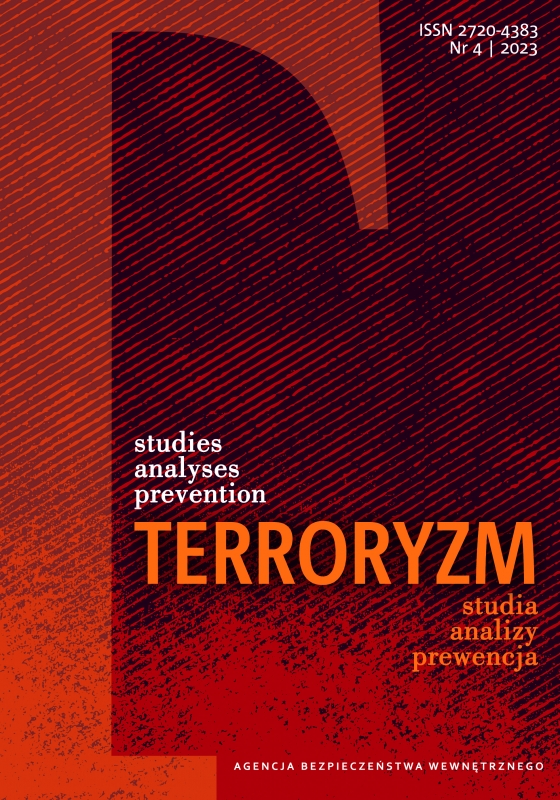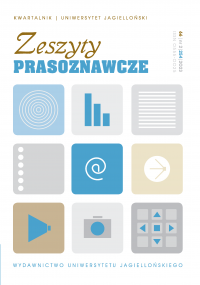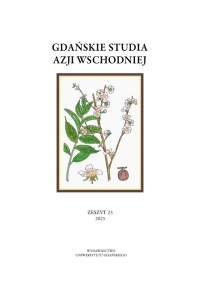


Protecting critical infrastructure with game theory, optimization techniques, and AI algorithms
Protecting critical infrastructure with game theory, optimization techniques, and AI algorithms
Keywords: optimization; security games; artificial intelligence; critical infrastructure
In light of recent geopolitical developments, Europe and Poland are acutely aware of the urgent importance of infrastructure security. Despite heightened interest and increased investments, our security resources remain severely limited, rendering continuous protection for every potential target unattainable. Consequently, the strategic allocation of security resources becomes an ongoing imperative. This paper presents a short introduction to the core principles behind advanced methods that facilitate automated decision-making in security resource allocation. These methods leverage artificial intelligence (AI), game theory, and optimization techniques, and have demonstrated their effectiveness through multiple real-life deployments in the USA. We also provide a concise overview of this exciting body of research and discuss the solutions and software developed by our team, “AI for Security” at the IDEAS NCBR research institute to protect critical infrastructure in Poland and in Europe.
More...
Selected aspects of crime involving virtual currencies
Selected aspects of crime involving virtual currencies
Keywords: cryptocurrencies; virtual currencies; crime; money laundering; terrorist financing; investigation; digital footprints and evidence
The article consists of two parts. The first discusses issues related to the functioning of the crypto-assets market in Poland and internationally and the planned changes in the regulations governing this market. They concern the legal status of digital tokens and their use in money laundering and terrorist financing, as well as the obligations of obliged institutions in the anti-money laundering system. The second part of the study focuses on procedural and non-procedural issues related to virtual currencies. The status of the digital artefact in criminal proceedings, operational work and the conduct of investigations with a view to combating cryptocurrency crime are discussed. The article concludes with demands addressed to law enforcement and law enforcement agencies. The aim of the article is to provide a comprehensive overview of the issues related to the use of virtual currencies in the commission of crimes, covering in particular AML and terrorist financing issues.
More...
Zonal security applied to modern diplomatic facilities, as exemplified by the construction of embassy buildings in Europe at the turn of the 20th and 21st centuries
Zonal security applied to modern diplomatic facilities, as exemplified by the construction of embassy buildings in Europe at the turn of the 20th and 21st centuries
Keywords: embassy architecture; security; diplomatic facilities; security features
Diplomatic facilities are buildings with a unique structure and of great international importance. One of the important factors in their design is security and therefore the use of possible security measures (active and passive) to prevent potential threats. The aim of this article is to present the security measures used for the architecture of diplomatic facilities using the example of embassy buildings in Europe. Twenty-two embassies located in Warsaw, Berlin and Rome were analysed from this perspective. The article characterises the elements used in their design, implementation and modernisation at the turn of the 20th and 21st centuries.
More...
Agroterrorism involving biological agents and related threats in Poland and Europe in the context of the COVID-19 pandemic and the war in Ukraine
Agroterrorism involving biological agents and related threats in Poland and Europe in the context of the COVID-19 pandemic and the war in Ukraine
Keywords: agroterrorism; bioterrorism; food security; biopolitics; INFOOPS
With the growing threat of agroterrorism and the highest level of risk in Poland and the European region since the Biological and Toxin Weapons Convention (1972) and the Additional Protocols to the Geneva Conventions (1977) came into force, it is important to analyse the challenges in the area of biosecurity and food security and make recommendations. The analysis carried out by the author of this article indicates that the COVID-19 pandemic has contributed to the dissemination of knowledge of the basics of microbiology and epidemiology and to the increased availability of low-cost, portable microbiological diagnostics, which may also have negative effects. The analysis took into account the possibility of foreign intelligence influencing food production in Poland, e.g. through disinformation via social media. Conclusions of the analysis include: expanding monitoring of the expert community and social media, strengthening the vigilance of food producers and agricultural experts, simulating introduction scenarios, studying radicalisation processes and using epidemiological assessment tools in case of alarming events.
More...
Book review: Marta Sara Stempień, Boko Haram 2002–2020. Czarne flagi nad Nigerią
Book review: Marta Sara Stempień, Boko Haram 2002–2020. Czarne flagi nad Nigerią
More...
Book review: Legal aspects of the European intelligence services’ activities edited by Piotr Burczaniuk, PhD
Book review: Legal aspects of the European intelligence services’ activities edited by Piotr Burczaniuk, PhD
More...
Effectiveness of selected AI models in predicting victims of terrorist attacks
Effectiveness of selected AI models in predicting victims of terrorist attacks
Keywords: AI; machine learning; terrorism; victims; classification
Terrorism continues to be a problem for many countries around the world. The article compares the effectiveness of selected machine learning algorithms in predicting the victims of terrorist attacks in order to answer the question of whether they can serve as one of the anti-terrorist tools. An exploratory data analysis was carried out, and selected trends and characteristics of terrorist attacks were discussed. Some measures for evaluating the classification algorithms used in the study are presented, and potential directions for further research are indicated.
More...
Counter-intelligence in anti-terrorist operations. Essay on relations
Counter-intelligence in anti-terrorist operations. Essay on relations
More...
Survey on terrorism in Poland and directions of its development. Expert commentary
Survey on terrorism in Poland and directions of its development. Expert commentary
More...
Spanish Presidency of the EU High Risk Security Network held by the Guardia Civil through the Grupo de Acción Rápida
Spanish Presidency of the EU High Risk Security Network held by the Guardia Civil through the Grupo de Acción Rápida
More...
EU Protective Security Advisors. European Union initiative to support Member States’ efforts in the protection of citizens and critical infrastructure from terrorist attacks
EU Protective Security Advisors. European Union initiative to support Member States’ efforts in the protection of citizens and critical infrastructure from terrorist attacks
More...
Prevention first. Swedish model of anti-terrorist protection
Prevention first. Swedish model of anti-terrorist protection
More...
Nihil durat in aeternum. On the Ecosystem of Political Communication in the Process of Dynamic Changes, Main Trends and Resulting Threats
Nihil durat in aeternum. On the Ecosystem of Political Communication in the Process of Dynamic Changes, Main Trends and Resulting Threats
Keywords: political communication; trend; ecosystem; viewers; media; political actors
Political communication observers and researchers recognise that the field is undergoing deep and multidimensional transformations. Numerous recent works presented and analysed the characteristics of the changes taking place and refer to the media, political actors or citizens. However, attempts at a multidimensional analysis of changes in the political communication ecosystem are much less frequent. This article aims to identify trends in contemporary political communication. A trend is a sequence of changes forming a certain regularity, showing strength and continuity over time, and the direction of development existing at a given moment. The research in this article identifies and analyses these trends, which should be understood as an interpretation of reality requiring an interdisciplinary and open heuristic approach. This approach will provide a broader view of the processes and changes taking place in the political communication ecosystem, allowing for further analyses and the formulation of hypotheses about the consequences and possible directions of the changes taking place, particularly those relating to trust in the media and politicians.
More...
Media Coverage of Gordon Brown’s ‘Bigotgate’ in the 2010 British General Election
Media Coverage of Gordon Brown’s ‘Bigotgate’ in the 2010 British General Election
Keywords: agenda-setting; ‘bigotgate’; Gordon Brown; The Guardian; Eastern Europeans; election; framing; Labour; media; migration
The aim of the paper is to gain a better understanding of the effect of media on public opinion, with particular attention to Gordon Brown’s ‘bigotgate’ taking place in April 2010 during his campaign for the British general election. The paper seeks to argue that the event had a major impact on Brown’s political career as well as Labour’s image on the British political landscape. The corpus of the study includes a selection of 100 articles from The Guradian which are qualitatively analysed, using media agenda-setting and framing, and juxtaposed to 30 Ipsos Mori opinion polls dealing with the event and related issues. Results show that the event had major repercussions on the British political scene. It damaged Brown’s political career, contributing to Labour’s inability to secure their fourth term in Ten Downing Street and increased Britons’ concern about mass migration, particularly from Eastern Europe.
More...
Chosen aspects of intangible and tangible legacies of Confucianism in North Korea
Chosen aspects of intangible and tangible legacies of Confucianism in North Korea
The purpose of the paper is to discuss the intangible and tangible assets related to Confucianism in North Korea. The study aims to demonstrate that there is a dichotomy between the official discourse, the adherence of the North Korean leaders to Confucian values, and the policy toward Confucian and neo-Confucian assets existing in North Korea. The method which is used in this essay is based on an analysis of various historical sources relevant to the description and analysis of the functions of Confucian and neo-Confucian assets in North Korea. It is concluded that the concepts of filial piety and the role of women were culturally transformed. This essay is based to a large extent on North Korean documents. It also briefly mentions North Korean researchers who studied Confucianism and neo-Confucianism in the Korean Peninsula. The answer to the research problem will allow us to determine what the place is of Confucianism in the official discourse and in the cultural heritage of North Korea. The essay also provides elements explaining why Confucian and neo-Confucian tangible assets constitute cultural and economic tools of North Korean government policy.
More...
MACHIAVELLI’S THE PRINCE: HOW TO REFUTE VIRTUE ETHICS IN THREE STEPS
MACHIAVELLI’S THE PRINCE: HOW TO REFUTE VIRTUE ETHICS IN THREE STEPS
Keywords: Niccolò Machiavelli; The Prince; virtues; vices; fox metaphor; Cicero;
This article examines Niccolò Machiavelli’s account of virtues in his famous work The Prince. The Italian philosopher uses three different stages or steps of argumen- tation. All these steps are analyzed in this paper. It is argued that in each step, Machiavelli makes partial conclusions which are neglected in the next step. In the last step, Machiavelli concludes that not only some virtues lead to failure, but all virtues are harmful to a suc- cessful leader. Instead of an honest and just way of acting, Machiavelli proposes the slyness of a fox – the most effective and successful way of acting. Cicero’s De Officiis effectively helps to understand the radicality of Machiavelli’s account of virtues. Cicero’s work enables one to explain all the central metaphors and analogies used in Machiavelli’s The Prince. Comparing Cicero’s and Machiavelli’s radically different accounts of the same virtues and vices shows that Machiavelli changed the traditional understanding of virtues, thus refuting traditional moral and political philosophy.
More...
BRUNO LATOUR: NEW CHALLENGES AND INSPIRATIONS IN POLITICAL ECOLOGY
BRUNO LATOUR: NEW CHALLENGES AND INSPIRATIONS IN POLITICAL ECOLOGY
Keywords: Bruno Latour; political ecology; politics; nature; humans; non-humans; common world;
Political ecology is a recent development in contemporary scholarship. Contrary to popular belief, the French philosopher Bruno Latour was not its originator. Some scho- lars began to recognise that nature and politics were closely connected back to the time of Montesquieu. Nonetheless, Latour’s political ecology is original in that it features new or revamped concepts that lend it new content and meaning. It includes concepts such as ‘mode of existence,’ ‘actor/network,’ ‘humans’ and ‘non-humans,’ ‘terrestrial’ or ‘Earthbound,’ and offers a new interpretation of the concepts of nature and politics. These concepts are the focus of the first and second parts of the article. The final part looks at their practical application, particularly in connection with Latour’s idea of creating a common world fit for life, or at least survival.
More...
TOWARD ENVIRONMENTAL CITIZENSHIP: THE CONCEPT OF CITIZENSHIP AND ITS CONCEPTUALIZATION IN THE CONTEXT OF GLOBAL ENVIRONMENTAL CHALLENGES
TOWARD ENVIRONMENTAL CITIZENSHIP: THE CONCEPT OF CITIZENSHIP AND ITS CONCEPTUALIZATION IN THE CONTEXT OF GLOBAL ENVIRONMENTAL CHALLENGES
Keywords: global environmental challenges; environmental citizenship; classical citizenship concept; environmental virtues; responsibility; citizen;
The issue of citizenship has been one of the main topics of political thinking since antiquity, when its origins were significantly shaped by classical philosophers, whose ideas are also important for modern thinking. Gradually, with the intensification of globalization many new conceptualizations of the classical concept of citizenship were formulated to address global challenges. These shift away from the basic view of the interconnec- tedness of citizenship with a specific territory and give humans a wider, global identity with an associated appeal to global responsibility. One such concept is environmental citizenship. This article is aimed at examining the historical development of citizenship, particularly in its republican and liberal versions, and its conceptualisation in the context of environmental problems that overcome national borders. The demands on citizens must be adapted to this reality. This article highlights the growing potential of environmental citizenship as one of the possible key factors for achieving a more sustainable world, which however requires the active involvement of nation-states.
More...
THE ANTHROPOCENE AND THE PROBLEM OF ANTHROPOLOGICAL CONSTANTS
THE ANTHROPOCENE AND THE PROBLEM OF ANTHROPOLOGICAL CONSTANTS
Keywords: Anthropocene; anthropological constants; Homo faber; Homo oeconomicus; Homo industrialis;
In the humanities and social sciences, the concept of the Anthropocene has become the starting point for theoretical analyses of the immediate relationship between the environmental preconditions for the existence of civilization and the human actions whose consequences threaten these preconditions. From the philosophical-anthropological point of view, reflections on the concepts of the Anthropocene focus not only on a criti- cal analysis of the claims about human that originate in the natural sciences but also on an understanding of the overall role of humanity in the new geological-climatic regime of the Earth. The primary purpose of this paper is to highlight two-pronged problem areas, which include both the problem of anthropological constants as specific ways of making statements about humans and the problem of using them to reflect on the conceptual system of the Anthropocene. In particular, this paper emphasizes hypotheses and claims from the Anthropocene concept of Earth System Science that point to humans becoming a geobiophysical force in the Anthropocene. Three areas in which anthropological constants could be subsequently subjected to a deeper analysis are proposed.
More...The search is temporarily unavailable.
We apologize in advance for the inconvenience and thank you for your kind understanding.
